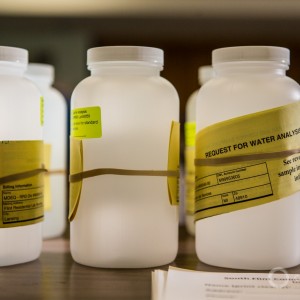The Stream, January 28: Australia Coal Mines Risky For Investors Due to Environmental, Market Factors
The Global Rundown |
Coal mines in Australia are high risk for investors due to their dependence on export markets and their exposure to environmental risks, a new study found. The majority of India’s urban sewage is never treated, and air pollution in South Asia may be changing monsoon rainfall. The El Nino weather pattern is exacerbating the melting of glaciers in the Andes, while a drought in South Africa is forcing the city of Durban to deliver emergency water supplies. Advisers in the United Kingdom said homes and businesses should still be built in floodplains, despite extensive flooding last month. The World Health Organization is holding a session to determine how to respond to the Zika virus, carried by mosquitoes that breed in stagnant water. Citizen groups in Flint, Michigan, filed a lawsuit under the federal Safe Drinking Water Act.
“The lower-level glaciers in the Andes, below 5500 meters, are really endangered now and probably only have a couple of decades left.” –Michael Zemp, director of the World Glacier Monitoring Service in Switzerland, on the increasing pace at which glaciers in the Andes are melting. El Nino weather conditions over the past year have compounded the problem. (New Scientist)
By The Numbers |
70 percent Amount of urban sewage in India that goes untreated because there are not enough sewage treatment plants, as well as problems with the treatment plants that do exist. IndiaSpend
80 water tanks Number being installed in Durban, South Africa’s third-largest city, to provide emergency water supplies to residents during the ongoing drought. Bloomberg
16,000 properties Number flooded during December in the United Kingdom. Despite the damages, government advisers said Wednesday that homes and businesses could still be built on floodplains, as long as developers and owners are made aware of the flood risks. Guardian
Science, Studies, And Reports |
Coal-fired power plants in Australia, China, and the United States are the most vulnerable to environmental risks, while thermal coalmines in Australia have a high level of risk for investors, according to a study by researchers at Oxford University. The study looked at the exposure of coal mines and coal utilities to environmental risks including water stress, government climate change policies, and competition from renewable energy sources. Guardian
Rising levels of air pollution in South Asia may be contributing to changes in the duration and location of monsoon rains, according to scientists. The monsoon accounts for nearly 80 percent of the region’s annual rainfall. The Third Pole
On The Radar |
Citizen groups in Flint, Michigan, filed a lawsuit Wednesday against city and state officials, alleging that they violated the federal Safe Drinking Water Act. Lead-contaminated water in the city was linked last fall to high levels of lead in the blood of Flint children. The Detroit News
The World Health Organization is holding a special session today to discuss responses to the Zika virus, a mosquito-borne sickness that may be linked to birth defects. In Brazil, where an outbreak of Zika began last year, President Dilma Rousseff urged residents to eliminate standing water, where the mosquitoes reproduce. Reuters
A news correspondent for Circle of Blue based out of Hawaii. She writes The Stream, Circle of Blue’s daily digest of international water news trends. Her interests include food security, ecology and the Great Lakes.
Contact Codi Kozacek







Leave a Reply
Want to join the discussion?Feel free to contribute!